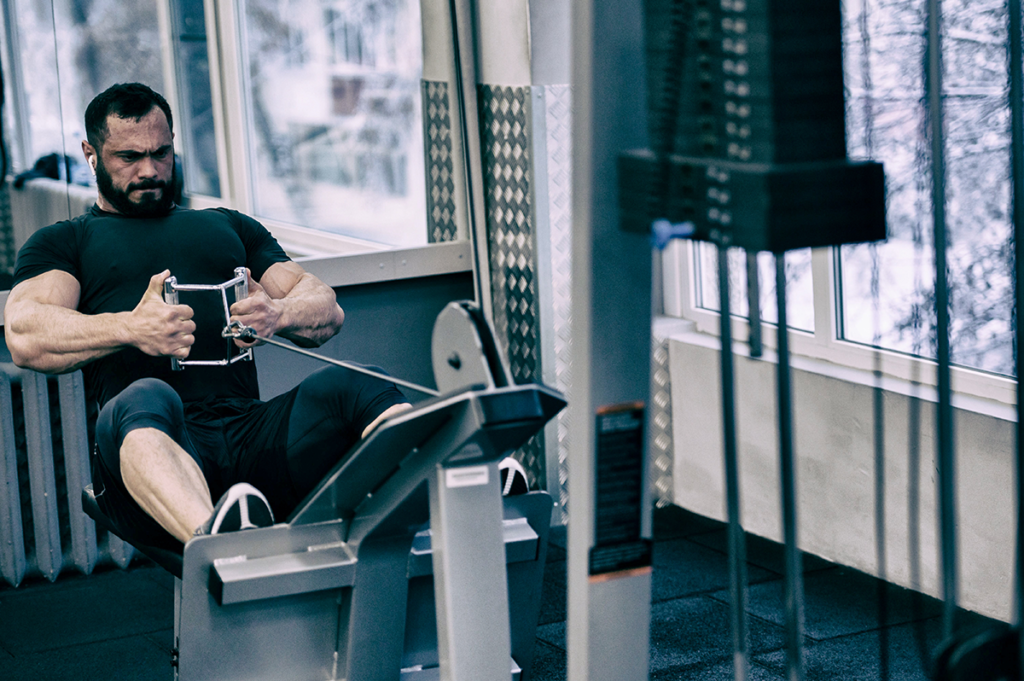
Here in Denver, many athletes will be starting to feel the winter blues sometime in November.
The days are getting shorter, the weather is getting colder, and the motivation to train can start to drop like the temperature.
For many people, this is the time of year when they start to think about signing up for a gym membership. But for athletes who want to get to the next level, the “traditional” gym experience doesn’t cut it.
Unless you have the right training facilities, a sport-specific training program, and a coach to help you execute it, it can be a tough time of year just to maintain training consistency—let alone reach new levels of performance.
If you’re a baseball player, for example, going to your average gym and running on a treadmill for half an hour isn’t going to do much to help your batting average.
If soccer is your game, you probably wish you were out on the field, working on your touch and improving your game; not stuck inside on a Stairmaster.
And if you’re a track athlete, the thought of having to brave the elements for your daily run can be enough to make you want to stay in bed.
Those training for winter sports have it a little easier, of course; for everyone else, it’s important to find ways to stay motivated and keep your training on track.

The thought of being cooped up training indoors all winter can be unappealing, especially if you’re someone who loves the outdoors. But while it may not be as exciting as working hard on the field or the track, you’ve got to keep your training consistent if you want to see results.
Remember that gains you make in strength and conditioning training are reversible—especially if you take a long break over the winter.
If you’re training for soccer, you don’t want to be playing catch-up come the start of the season. And if you’re training for baseball, you want to be able to hit the ground running come springtime.

The good news is that—with the right approach, the right coaching, and the right performance training facilities—you can use the winter months to your advantage and come out of the season stronger and faster than ever.
How can you stay motivated to train during the winter?
First, it’s important to have a plan. Know what your goals are and what you need to do to reach them.
If your goal is to get stronger, make sure you’re following a strength-training program that is specific to your sport, for example:
- If you’re a runner, make sure you have a plan for your runs that includes speed work, hills, and long runs.
- If you’re a soccer player, make sure you’re doing agility drills and working on your footwork.
- If you’re a pitcher, now is a great time to take advantage of modern baseball training techniques (and technology) to elevate your game.
Now that you’ve thought about your goal and what you can do to reach it, here are some additional tips for keeping your training on track during the winter months:
- Find a training partner, group, or private training to keep you accountable. It’s much harder to skip a workout when someone is counting on you to be there. If you have a coach or trainer, they can help you stay on track when motivation starts to drop.
- Make sure you’re doing specific training that will help you in your sport. General fitness is obviously important, but if you’re someone who truly wants to reach the next level in your sport, you need to be doing sport-specific training whether your sport is in season or not.
- Make sure you’re giving your body the fuel it needs to train hard. Eating a well-balanced diet, getting enough sleep, and managing stress are all important factors in maintaining training consistency.
- Set up your training environment for success. If you’re training at home, make sure you have all the equipment you need and that your space is set up in a way that supports your training. If you’re training at a facility, make sure it’s clean, well-lit, and has everything you need: certified coaches and trainers, machines, weights, and so on.
- Make sure you’re mixing up your training. If you do the same thing every day, you’ll quickly get bored and lose interest. Mixing up your training keeps things interesting and helps you stay engaged.

Final Thoughts
Remember that training for performance should be something you enjoy, not something you dread. If you’re not enjoying your sport-specific training, it might be time to look into a custom, personalized training program, or find another sport that you do enjoy.
The most important thing is that you don’t let the winter months derail your progress. If you can stay motivated and consistent with your training during the winter, you’ll be ready to crush your athletic goals come springtime.
Training in the winter can be tough, but it’s also an opportunity to get ahead of the competition. By following these tips, you can make sure you’re staying on track—and motivated to reach the next level.


